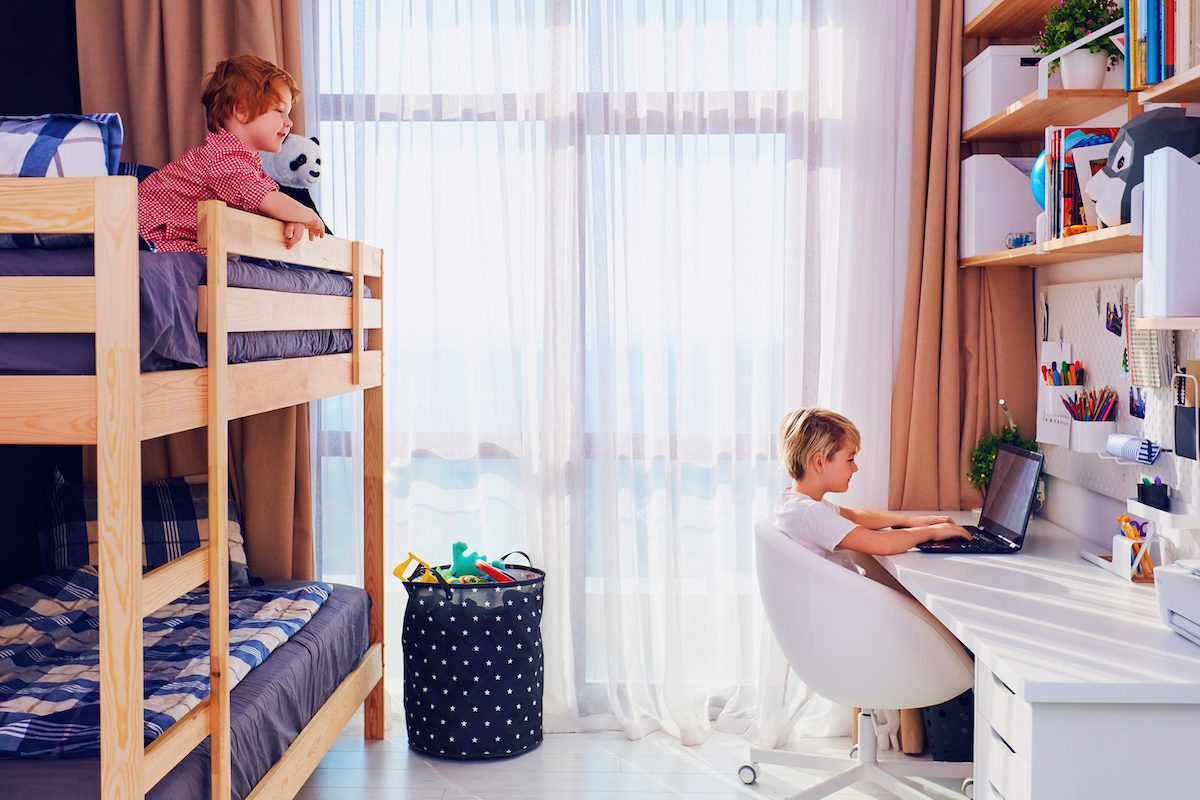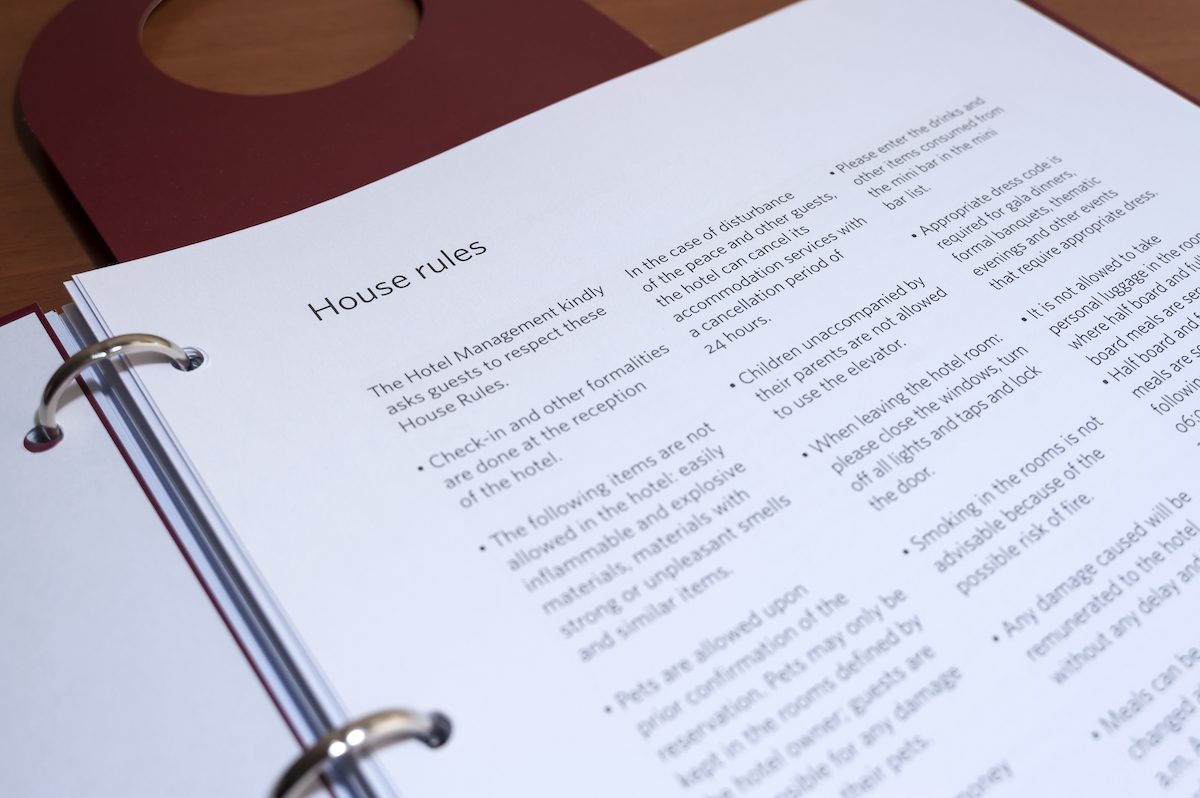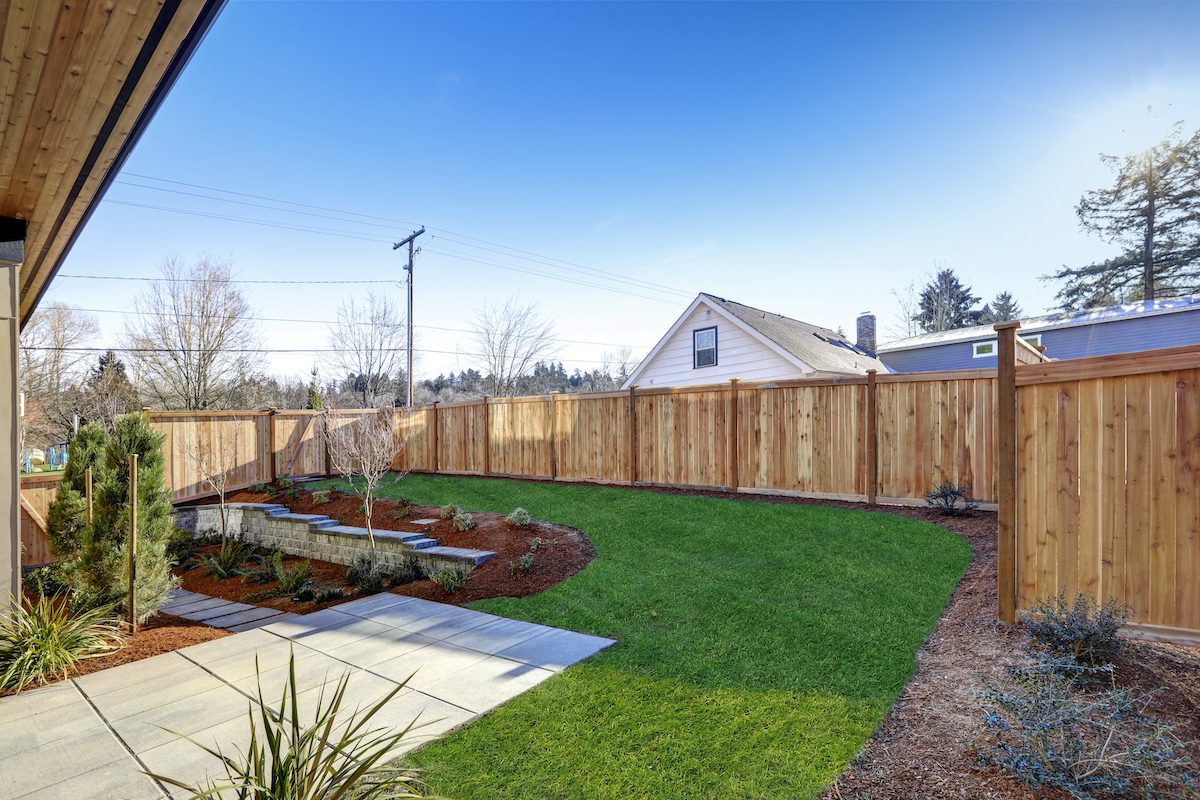10 Things to Know About Renting to Tenants With Kids

As a landlord or property manager, you may worry about renting to families, thinking that the kids will cause damage or make extra noise. But, according to fair housing laws, it's illegal when landlords refuse to rent to tenants with children.
More than 20 percent of renters have children. So, it's inevitable that you'll encounter a prospective tenant who has kids. That's why it's crucial to understand fair housing rules and take a few extra steps to make your home kid-friendly to accommodate all residents. Plus, there are several benefits to having kids live in your home. Here are 10 things to know when renting to tenants with kids.
1. You must follow the federal Fair Housing Act
The Fair Housing Act prohibits discrimination in housing against certain protected groups, including race, sex, national origin and religion. Familial status is also considered a protected class.
Under federal law, familial status covers:
- Families with children under 18
- Pregnant women
- Anyone who obtains custody of a child, including adoptive or foster parents
- Individuals with the written permission of the parent or legal guardian
The law prohibits a property owner from refusing to rent to anyone who falls into these categories or evicting tenants once children join the family.
Many states also have their own fair housing laws in addition to the federal statute. So, landlords need to make sure they understand all local laws or requirements. A landlord could face legal trouble if they exclude children.

2. Occupancy limits don't apply to children
Many states or municipalities have occupancy rules for rental property. While these ordinances differ from place to place, they commonly state that no more than two people per bedroom can live in the home. These regulations usually don't apply to children, however.
A landlord can specify how many adults live in the home but not how many children can live there. Also, keep in mind that babies under age 1 are not counted as occupants.
3. Rent prices must be the same for families with children
When deciding how much rent to charge for the property, landlords can't adjust the amount based on whether or not your tenant is a family with children or a single individual. Doing so would be overt discrimination. Whatever rent you settle on, you have to charge the same amount for all residents.

4. Set the same rules for all renters, including tenants with children
Just like you can't adjust the rent with children, property managers and landlords can't change any other rules, like rental application requirements for prospective tenants.
However, a landlord can and should set safety rules for the property — you just have to apply them equally, not just to families with children. For example, you can set quiet hours or swimming pool rules as long as they apply to all the other tenants, too.
5. Take steps to make your rental property child-friendly
Making a few inexpensive updates will make your rental property child-friendly and that will attract families. Hiring closet organizers to create extra storage or installing built-in bookshelves, fencing in the back yard and swapping the carpet for tile or wood floors to prevent stains are some upgrades that make the space more child-friendly. Paint with a satin finish is also more durable and can take wear and tear.
These upgrades might cost a few hundred dollars but they'll pay off. They'll be attractive to families with children so you'll have no trouble renting out the home. And, they'll minimize the risk of property damage and may even increase the value of the home.

6. Add safety features to the property to protect children
Investing in a few safety features will ensure the safety of the children while living in your home and it will protect property owners and property management companies from liability. Making a reasonable modification here and there will put parents' minds at ease, too.
Some safety features to consider include:
- Adding cabinet locks
- Removing cords from blinds
- Installing a backyard fence
- Adding fencing and a locked gate around swimming pools
- Using electrical outlet covers
- Ensuring balcony railings are secure
These minor upgrades could possibly lower your insurance rates, as well. It's a win for everyone.
7. Install noise-mitigating features
Children playing are noisy for other residents. There are a few ways to mitigate noise to keep all your tenants happy.
Carpet is easily stained, especially if small children live in the home, but it can also absorb sound. If noise is a top concern, consider installing carpet in your rental property.
If you plan to have rent to tenants with kids often, invest in sound-proofing wall installation. It could cost up to $2,700, according to HomeAdvisor, but it will save you the headache of noise complaints.

8. Families must have access to all rental units
The familial status provision of the Fair Housing Act prohibits landlords or property managers from devoting certain units or rental properties to families. For example, you can't require families with children to live on certain floors or in specific properties or impose stricter rules about children using common areas.
All tenants, including families with children, must have equal opportunity and access to the same rental property.
9. Marketing properties to families offers several advantages
Families with children make great tenants. Parents who find a safe, kid-friendly home are likely to stay put, which will keep vacancy rates down. Marketing rental property to families is different than targeting young professionals or single people, though.
When you market your rental property, focus on aspects that would attract a family, such as having a fenced-in backyard or a spare room that could serve as a play area. Mention how close the home is to local schools or daycare centers, grocery stores and other residents with kiddos tend to visit.

10. Word your rental ads carefully, though
When crafting marketing for your rental properties, be careful with your wording. Avoid including statements like "no kids" that could be considered overt discrimination. Phrases like "perfect for college students" or "ideal for young professionals" can also come across as discriminatory. Even implying that a landlord refuses to rent to children could land you into trouble with state law or fair housing laws.
Renting to tenants with kids and fair housing laws
While you may worry about having children in your rental home, refusing to rent to tenants with kids, whether it's a single parent or family, is a violation of the Fair Housing Act and other applicable laws. Landlords need to make reasonable accommodation for any qualified tenant who has children, and landlords or property managers can't charge more rent or designating certain units as kid-friendly.
Being open to children and actively working to create a family-friendly environment will benefit you in the long run. Tenants with children are likely to stay put when they have a safe, cozy place to call home.
